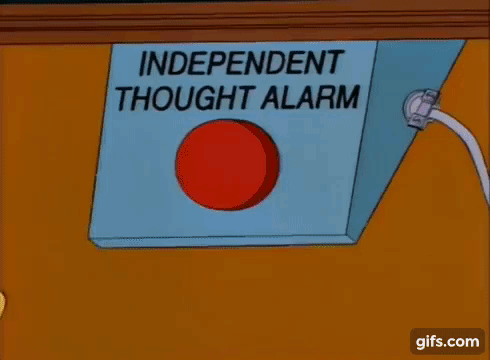- Oct 17, 2011
- 33,316
- 36,634
- Country
- United States
- Faith
- Atheist
- Marital Status
- Legal Union (Other)
The next book ban: States aim to limit titles students can search for
Republican lawmakers across the country are proposing legislation that would target online library databases and library management technology — tools built by a half-dozen large companies that catalogue millions of books, journals and articles that students peruse for assignments.
These bills — already enacted in Utah and Tennessee, on the verge of becoming law in Oklahoma, and proposed in at least six other states — are broadly similar. They require databases to remove and block student access to material that is obscene, inappropriate contentographic, sexually exploitative of children or “harmful to minors” — designations that opponents say could encompass a wide range of texts.
But educators and librarians say the new laws are unnecessary, as federal child protection and Internet privacy laws passed decades ago already require database companies to ensure that their materials are age-appropriate
So far, database companies — such as ProQuest, Gale, EBSCO Information Services and Follett School Solutions — say they are tracking the spate of legislation but have no plans to make major changes to their services.
Educators worry that the real purpose of the laws — especially those forbidding content “harmful to minors” — is to justify blocking articles and books that parents dislike.
Maybe these states can contract with Baidu to provide these services.
<meanwhile>
Upset by book bans, teen starts forbidden book club in small Pa. town
As book banning in schools reached unprecedented heights in the United States, 14-year-old Joslyn Diffenbaugh was having none of it.
“It’s really problematic, because books are the only way that you can be in another person’s shoes,” said Joslyn, a self-proclaimed “book nerd,” who lives in the small town of Kutztown, Pa., near Allentown.
Like several other teens across the country, she started a banned book club — where members read books that have been outlawed in schools and then meet regularly to discuss them.
So far, they have read six novels, including George Orwell’s “Animal Farm” and “1984,” as well as “Melissa” by Alex Gino and “Stamped: Racism, Antiracism, and You” by Jason Reynolds and Ibram X. Kendi.
“They were really eye-opening,” said Joslyn, an eighth-grader at Kutztown Middle School. “They are books that make you think.”

Republican lawmakers across the country are proposing legislation that would target online library databases and library management technology — tools built by a half-dozen large companies that catalogue millions of books, journals and articles that students peruse for assignments.
These bills — already enacted in Utah and Tennessee, on the verge of becoming law in Oklahoma, and proposed in at least six other states — are broadly similar. They require databases to remove and block student access to material that is obscene, inappropriate contentographic, sexually exploitative of children or “harmful to minors” — designations that opponents say could encompass a wide range of texts.
But educators and librarians say the new laws are unnecessary, as federal child protection and Internet privacy laws passed decades ago already require database companies to ensure that their materials are age-appropriate
So far, database companies — such as ProQuest, Gale, EBSCO Information Services and Follett School Solutions — say they are tracking the spate of legislation but have no plans to make major changes to their services.
Educators worry that the real purpose of the laws — especially those forbidding content “harmful to minors” — is to justify blocking articles and books that parents dislike.
Maybe these states can contract with Baidu to provide these services.
<meanwhile>
Upset by book bans, teen starts forbidden book club in small Pa. town
As book banning in schools reached unprecedented heights in the United States, 14-year-old Joslyn Diffenbaugh was having none of it.
“It’s really problematic, because books are the only way that you can be in another person’s shoes,” said Joslyn, a self-proclaimed “book nerd,” who lives in the small town of Kutztown, Pa., near Allentown.
Like several other teens across the country, she started a banned book club — where members read books that have been outlawed in schools and then meet regularly to discuss them.
So far, they have read six novels, including George Orwell’s “Animal Farm” and “1984,” as well as “Melissa” by Alex Gino and “Stamped: Racism, Antiracism, and You” by Jason Reynolds and Ibram X. Kendi.
“They were really eye-opening,” said Joslyn, an eighth-grader at Kutztown Middle School. “They are books that make you think.”

